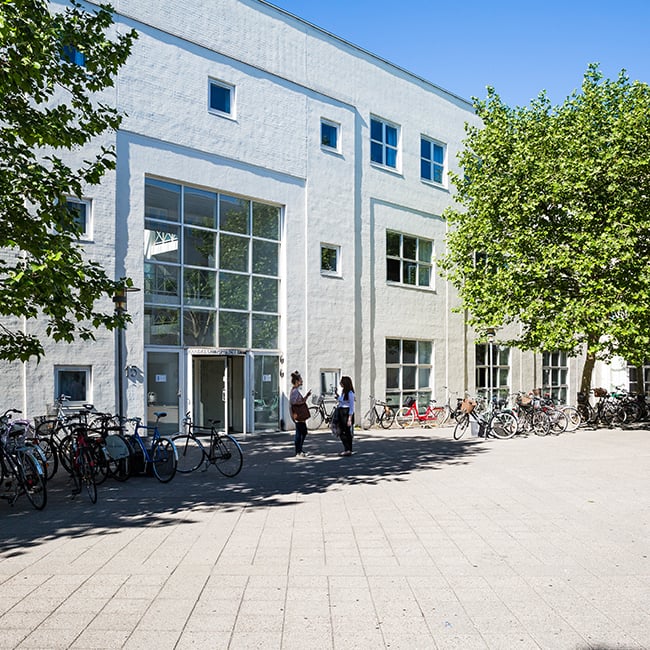
Replacement of central source systems
Copenhagen Business School is Denmark’s largest educational and research institution within social sciences and business economics with approx. 20,000 students and 1,500 employees. To support CBS ‘decision-making and development processes, the Department of Business Information & Analytics displays data and reports for approx. 1,500 Power BI users, which helps ensure the coherence of data and processes in the organization.
For several years, CBS wanted to upgrade their financial and business system to Navision Stat, which is the state’s decentralized financial management system. Before this could be realized, there was a need for a major adaptation and replacement of their systems as well as the BI foundation. The upgrade to Navision Stat involved the replacement of five of CBS’ central source systems. The systems were interdependent and therefore had to be upgraded at the same time.
“One of the success criteria was that we had to report relatively quickly after the project went live. So we could not wait for the solution to be fully developed and for all source systems to be implemented before we could start working on the reporting solution. Therefore, it was necessary to have twoday onboard; so there was a constant development”, says Kristian Dyhr, CFO at CBS.

Technical migration project became a business development project
twoday was given the task of helping to migrate CBS’ existing BI solution to a new solution but it soon became clear that there were several unknowns that needed to be clarified before the project could start:
“It was not possible to work with deadlines because there was so much that needed to be clarified along the way. We, therefore, agreed with twoday to keep scenarios open and welcome any changes. It was in many ways an iterative process”, says Mette Dybkjær, Team Manager, Business Information & Analytics at CBS.
The upgrade of their source systems included an update of the following data areas:
- Accounting and financial management
- Budgeting
- Records management
- Student payments
- Resource management
- Salary allocation/follow-up
Because the source systems were so central, the project quickly developed from being a technical migration project to also being a business development project. In addition to twoday, three other consulting houses were working in CBS who all built on separate source systems at the same time. There was therefore a need to see things across processes and departments:
twoday were good at directing the dialogue towards results with the other external consultants. They were very much focused on getting the final solution to the finish line. They are not only technical craftsmen but also have business-oriented competencies so there is an understanding between programmers and the business”, says Kristian Dyhr.
There was a close collaboration between CBS and twoday with weekly meetings with great transparency from both parties where challenges and progress could be discussed. All project deliveries were timeboxed with two weeks of development followed by 1 week of testing. In this way, parts of the project were constantly delivered to CBS throughout the development process.

A strong BI foundation
The project started by drawing the overall lines to create a common understanding of what CBS needed. Among other things, various architectural designs were made to clarify which source systems already contained or should contain various master and transaction data that other systems could use – and thus ensure data consistency for the BI solution and CBS ‘system landscape.
Although the project was larger than CBS had originally expected, they now have a really good foundation to further develop on.
“The project with twoday has helped to challenge and strengthen the maturity in the way we work and further develop our competencies on the BI front. We have become more aware of what it takes to be able to manage such a project in the future; it requires mature data areas and needs as well as the recognition of not achieving everything 100% in the first round”, says Mette Dybkjær.
Standardized way of working
With close collaboration, big support from the management at CBS and willingness to change CBS now have some well-functioning source systems and a BI foundation with standardized workflows that run without problems:
“We have a solution that works across the organization. In addition, on the BI side, we have a much better basis for our own work. We now have an improved standardized way of working and we keep better track of the jobs that are running. In that way we are better prepared to react if challenges arise,” says Mette Dybkjær.
The new BI foundation and associated development processes were handed over during a time of two months with a consultant from twoday remaining as implementation support a few days a week to equip CBS’ technical competencies for the new processes. Thus, CBS could continuously begin further development with a consultant on the sidelines.
"We have not needed to call twoday since the handover, which is really positive and a sign that the solution is running stably and that there has been a thorough and serious involvement in the final phases. It’s a huge benefit that we have not been dependent on consultants afterward."
Kristian Dyhr, CFO at CBS
About CBS
Copenhagen Business School was established in 1917 and became an integral part of the Danish education system in 1965.
Today, CBS is one of Denmark’s 8 universities and has 20,000 students and approx. 1500 employees, researchers, Ph.D. students and administrative staff.
